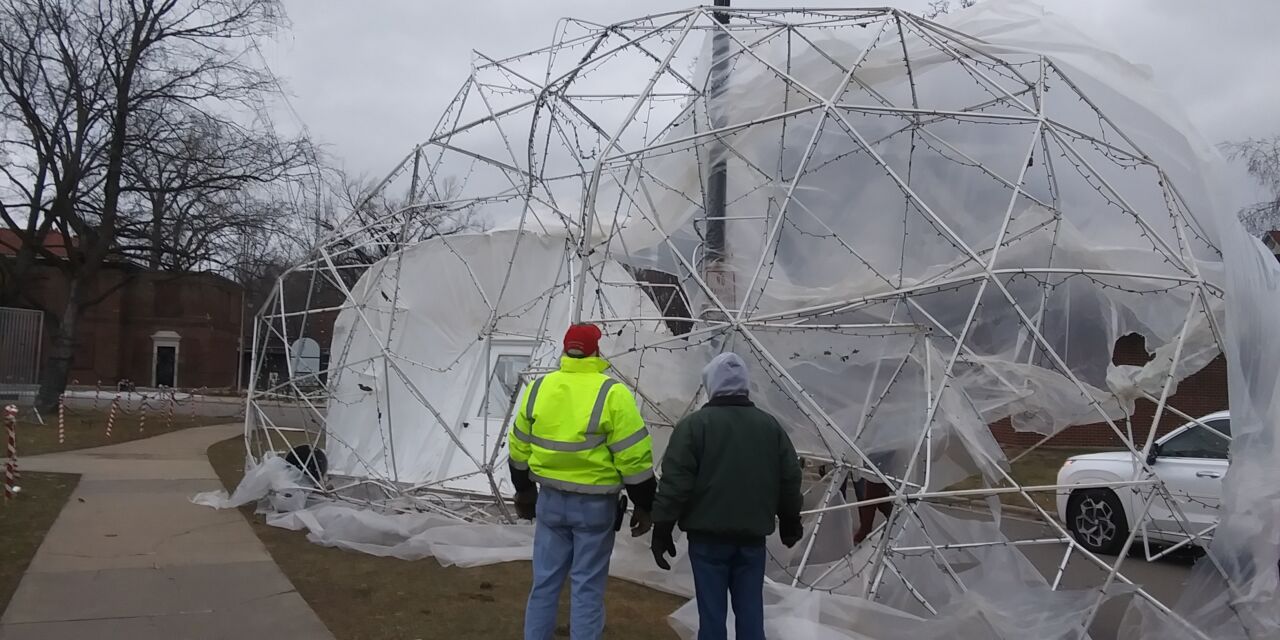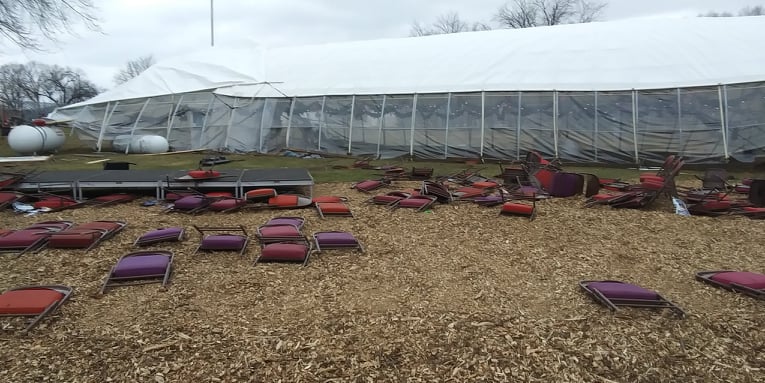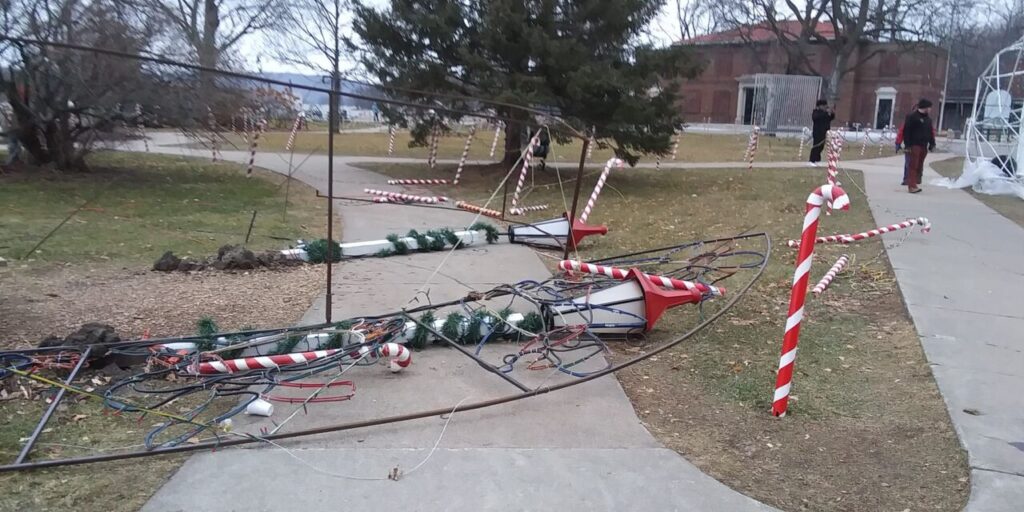Environment
In 30 years of La Crosse’s Rotary Lights, only once did a storm take it out — a weather system like no other

The Rotary Lights display in La Crosse’s Riverside Park is now a 30-year tradition shining along the riverfront every night from Thanksgiving weekend to New Year’s Eve.
Three years ago, though, never-before-seen weather shut everything down in the middle of the season, but volunteers worked tirelessly to get some semblance of Rotary Lights back on display.
It was called a serial derecho. The area saw 60 tornadoes and wind gusts over 75 mph, all caused by a warm weather system with December temps over 60 degrees.

That system had never occured this far north in the U.S. and Rotary Lights shut down on Dec. 15, as the storm wreaked havoc on the advanced displays.
The lighted igloo in the north end of the park was destroyed, blown up against a light pole. The large shelter called the “ice castle” flew 50 feet, striking the park’s fire-breathing dragon.
La Crosse saw gusts peak at 68 mph — the second-highest ever reported in the area. The system also brought new record high temperatures for December and the first-ever report of a December tornado here.

The damaging line of storms known as a derecho had concentrated in Iowa, Nebraska, Minnesota and western Wisconsin.
But volunteers showed up in Riverside Park the next day — over 60 of them. Repairs were made. And the display was back up, including that fire breathing dragon, less than 48 hours after an ice castle flew into it.
The computerized, lighted tree that’s kind of the hallmark of Rotary Lights had to be rebuilt for the next year. Other repairs took months.

Rotary Lights founder Pat Stephens credited “so many good people” who helped to restore the park to its traditional look after the 2021 storm.
While Rotary Lights provides entertainment for thousands each season, the goal of the display is to collect donations for food pantries across the area.
Over 30 years, Rotary Lights has seen 5,447,300 food items donated with a record set in 2022 of 341,553. A “small” jump from the first year, in 1995, when 13,010 food items were collected.








